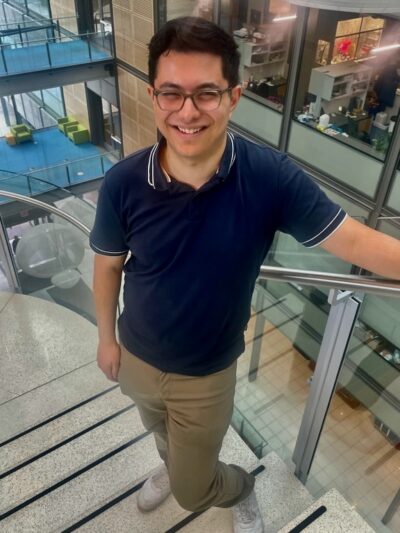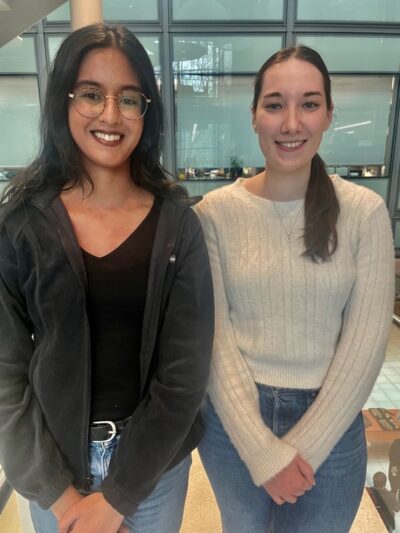Three Princeton Chemistry grad students named NSF GRFP Fellows
The Department of Chemistry is pleased to announce that three current graduate students have been named fellows in the 2025 National Science Foundation Graduate Research Fellowships Program (NSF GRFP), the prestigious awards program for early-career scientists pursuing advanced degrees.
The new fellows are Andreas Ghosh, a first-year graduate student jointly advised by Joseph Subotnik and Sharon Hammes-Schiffer; Lauren Harstad, a second-year in the MacMillan Lab; and Deepika Shingwekar, a first-year in the Stache Lab.
In addition, seven incoming Princeton Chemistry graduate students have been named fellows for the start of the 2025-2026 term.
The NSF awards are given annually in April to young scientists and engineers throughout the country “to help ensure the quality, vitality, and strength of the scientific and engineering workforce of the United States,” according to the program website. The fellowships provide three years of financial support, including an annual stipend.
An additional 3,018 applicants across the country were awarded honorable mentions, a distinction that does not carry funding but serves as an important resume credential. The fellowship is one of the longest-running for young scientists, starting in 1952 and funding more than 75K students.

Andreas Ghosh, first-year graduate student.
Ghosh was awarded his fellowship in Chemical Theory, Models, and Computational Methods. His research in the Hammes-Schiffer and Subotnik labs is in nonadiabatic dynamics, where electronic wave functions and nuclear motion are coupled together in a way that violates the Born-Oppenheimer approximation.
“In simpler terms, I use computer simulations to look at how electrons and nuclei in molecules interact with each other as they move around,” said Ghosh. “This has really cool applications in energy research, such as superconductivity and photocatalysis.
“With the NSF GRFP, I will have the freedom to explore the complexities of this field and its most interesting applications. I can’t wait to uncover more ways in which nuclei and electrons are coupled together.” Ghosh earned his undergraduate degree at the University of Pennsylvania.
Harstad was awarded her fellowship in Chemical Catalysis. Her research in the MacMillan Lab focuses on the use of photoredox catalysis for the difunctionalization of alkenes via triple radical sorting methods.

Deepika Shingwekar, left, first-year grad student; and Lauren Harstad, a second-year.
“Winning this fellowship means so much for my future graduate studies and career in chemistry,” said Harstad. “I feel so grateful to have received such a prestigious recognition, and I want to thank Dave, my mentors in the MacMillan Lab, and my undergraduate network for providing so much support throughout the application process. I look forward to all the exciting research that this funding will enable.” She earned her undergraduate degree at Arizona State.
Shingwekar received her fellowship in the Macromolecular and Supramolecular field. In the Stache Lab, her work focuses on the photothermal depolymerization of commercial polymers to their constituent monomers, allowing for a circular and energy-efficient way to recycle these materials. This fits in with one of the Stache Lab’s missions of utilizing photothermal conversion to surpass high activation energy barriers in a variety of organic reactions.
“The NSF GRFP fellowship will enable me to have intellectual freedom to pursue new research directions when they arise and allow me to continue my research goal toward a more sustainable future,” said Shingwekar. She earned her undergraduate degree at Reed College.
For the full list of 2025 NSF GRFP awardees, click here.
